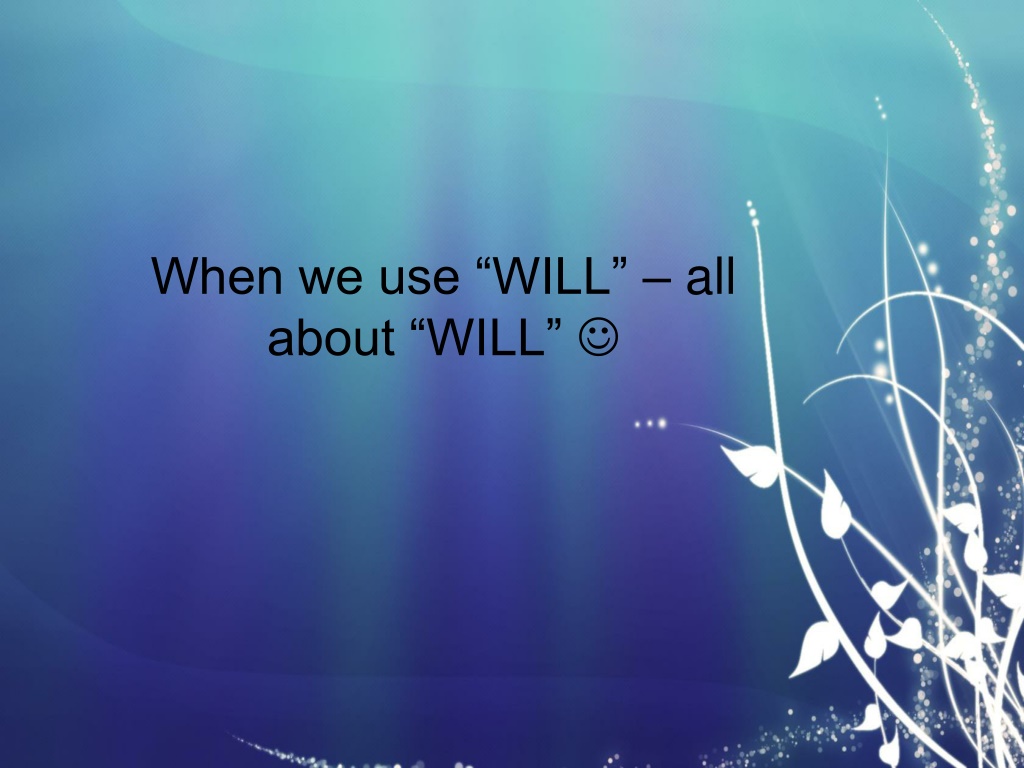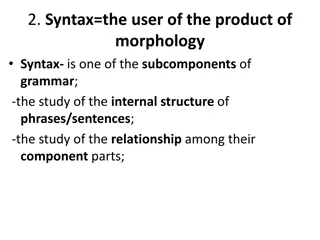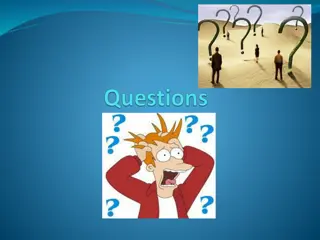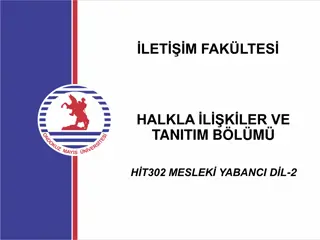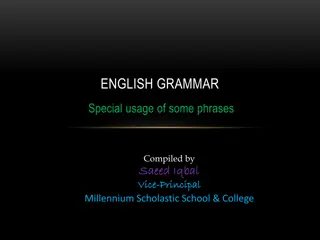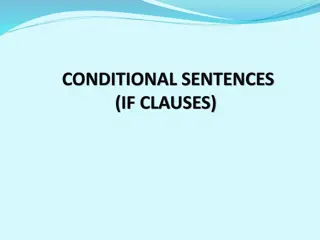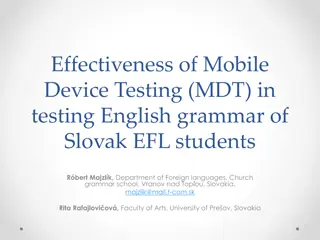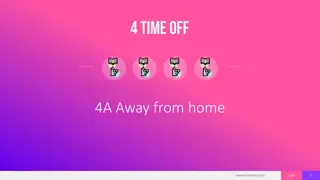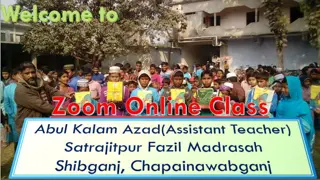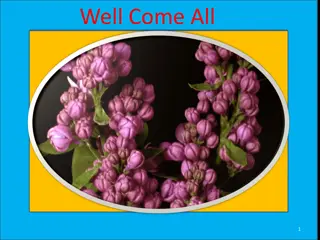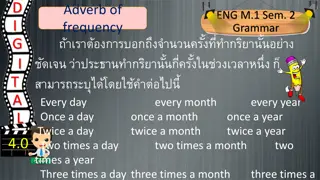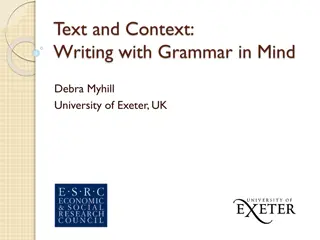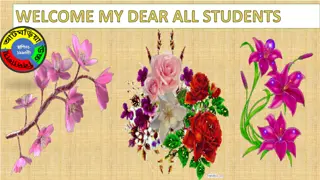Understanding the Usage of "Will" in English Grammar
Discover the various ways in which the modal verb "will" is used in English grammar, such as to indicate future information, make predictions, express certainty, personal opinions, promises, threats, offers, hopes, and requests. Learn about using adverbs with "will," expressing personal opinions, making on-the-spot decisions, and incorporating time expressions in sentences with "will."
Download Presentation

Please find below an Image/Link to download the presentation.
The content on the website is provided AS IS for your information and personal use only. It may not be sold, licensed, or shared on other websites without obtaining consent from the author. Download presentation by click this link. If you encounter any issues during the download, it is possible that the publisher has removed the file from their server.
E N D
Presentation Transcript
When we use WILL all about WILL
When we use WILL: - To give information about future. Prediction in general . Don t worry! It will be OK. The weather will change soon. You will never finish that book Who do you think will win on Saturday? I Will .
We use WILL with adverbs to indicate the level of certainty: definitely possibly probably certainly The weather will definitely change soon. Man will probably land on Mars before the end of the century. I will certainly be home soon. This bakary will possibly close this weekend.
- To express a presonal opinion, we use WILL with: I think I don t think I guess I expect I m sure I m afraid I wonder I will go to bed. the test will be difficult. you will do the right thing. Serbia will win. we will have a great time together! I will not pass the exam. who will win the football tournament this year? you will come. I hope
On a spot- decision :- It is too late ,we will take a taxi . Will is used for warning ,threat ,promise, hope ,request ,offer. Don t sit near the edge, you will fall down . Your dad will punish you if your marks are low I promise I will tell the truth . I hope the weather will be fine tomorrow . Will you help me with this heavy bag? I will help you to pass your exam.
In sentences with WILL, we often find: definite time expressions: Indefinite time expressions: Tomorrow This year In the next month In five days In two years time In 2050 In the future In the near future Soon Later Sooner or later These expressions are usually placed at the end of the sentence. I am busy now. I ll see you later. The climate will get warmer and warmer in the future.
We use WILL: - To make promises and express propositions for the future. We ll see what we can do. I will come to see you in Greece, I promise! I will try and work harder next semester.
Im sorry. I promise I won t drive your car again.
We use WILL: - To express an immediate decision, made at the time of speaking. - OFFER to do something! Let me help you. I will carry those bags for you. I will call taxi for you, madam! I will pay! Have you lost your key? I will go and look for it!
We use WILL: - To say what you would like, for example in a restaurant. Yes. I Yes. I will steak with steak with potato chips. potato chips. will have have Are you Are you ready to ready to order? order?
We use WILL: -To refuse to do something (in this case we use NEGATIVE form of WILL = WON T (WILL NOT) (will not) What is the What is the answer to answer to exercise 4? exercise 4? I won t tell.
But now, lets see when we use BE + GOING TO + VERB
We use BE + GOING TO + VERB -To talk about things that we decided to do, but that we haven t yet planned in detail. (Intension ) Mike is going to orgnise a welcome party! I am going to give them a wedding present. (but I haven t decided what to get yet) NOTE: The future with going to only expresses willingness and intention of doing something.
We use BE + GOING TO + VERB - To talk about long-term project)ts (Plans and - Intenstion). A: What are you going to be when you grow up? B: I am going to be a reporter.
We use BE + GOING TO + VERB (Predication with evidence ) -To foretell an event that will happen in the immediate future esspecially on the basis of what we see in the present Prediction with evidence. Hey, look! She is going to fall down! The clouds are grey. It is going to rain.
